[ENG] [ESP] 🪶My review about The boy and the heron | Mi reseña sobre El niño y la garza🐦
Sigue bajando para la versión en español
Hey there, Hive!✨
It's been a while since I was moved by a recent movie, until I saw The Boy and the Heron, by the great Hayao Miyazaki from the equally great Studio Ghibli. Today I will share my opinion about it, which will have spoilers and which you can already guess something about. Yes, I absolutely loved it, but keep reading if you want to know why
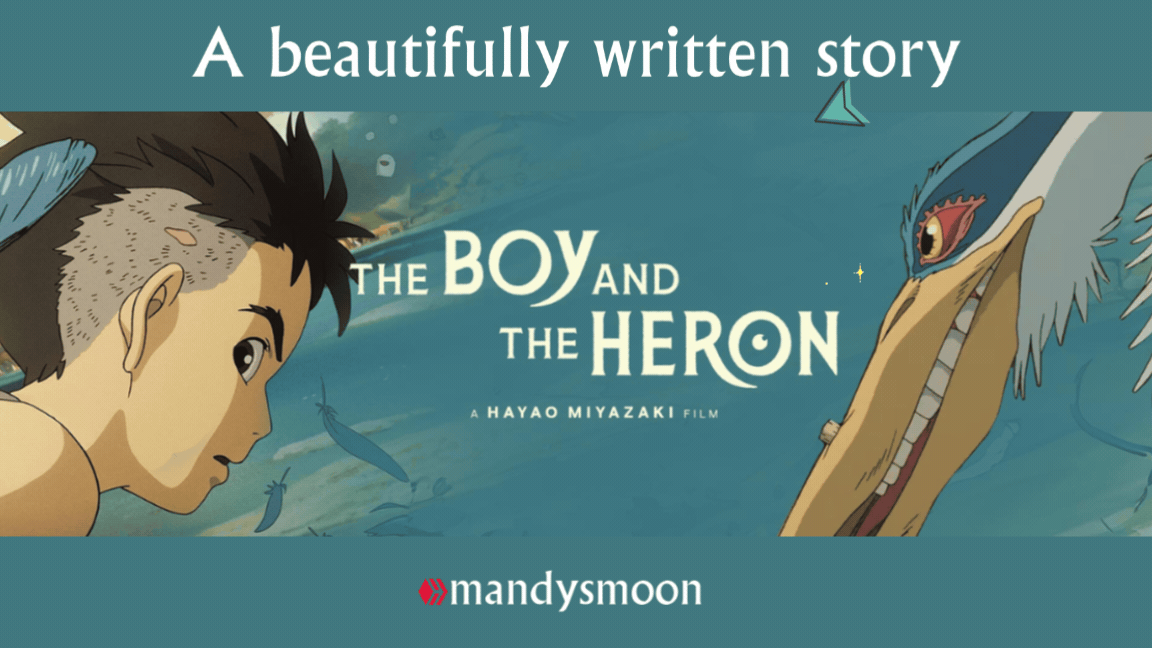

Synopsis
It's 1943, in the midst of the Pacific War. Mahito Maki is just 12 years old and lives quite comfortably with the successful businessman Shoichi, his father, and his mother. Everything was going well even though she was in a hospital. But one night, suddenly, the hospital catches fire. His mother is still inside, but despite all their efforts they are unable to rescue her...
Later, his father remarries Mahito's mother's younger sister, Natsuko, who is also pregnant, so they decide to move to her country house so that she can be cared for by her servants and also as an escape from the stress of war.
Mahito tries to adapt to his new life without any success, and as if that wasn't enough, there is an annoying animal, a heron, that keeps harassing him everywhere in the house. The boy soon discovered that the animal was deliberately bothering him...

This movie has a lot to offer. We can start by talking about what the productions of this director and the studio usually include, because as usual the animation is simply incredible. For being 2D, it is so rich in detail that it really doesn't need to use other resources, it is wonderful in every sense. I especially love the scene of the burning hospital, not only for the style but also because they make perfect use of animation as a communication resource. The desperation, drama and trauma of the scene is represented in the way where everything looks fuzzy, almost blurred, where you can barely see any details because everything feels like it's happening too fast, just like it would in real life.
Along with that, there is the complement of the auditory, with details like in that same scene, where because of something traumatic that a child experiences, the noises sound muffled, you can't distinguish what the voices are shouting, it's like background noise. Once again, the studio has made an audiovisual gem.
It is also completely loaded with symbolism and references to Japanese folklore, something that happens in all the films of this studio, being a striking and interesting element. I regret that the translation of the title of the film has not been literal since it also has a meaning. Kimitachi wa Dō Ikiru ka 君たちはどう生きるか literally means «How will you live?» which already from the beginning tells you what the story will be about, which is partly inspired by a book, but mainly by Miyazaki's own life.
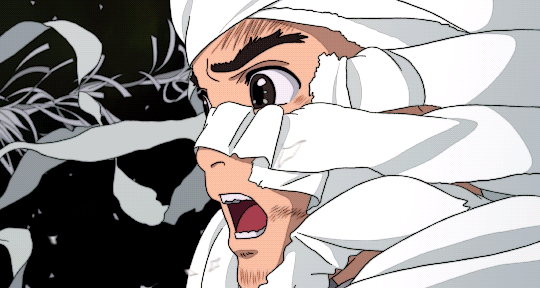
The main message is to let go, specifically to accept and internalize the loss of a loved one. Mourning can be an arduous and painful process, especially if you are too young to understand the implications of many things. Change always generates resistance, but if you don't start to accept it, it will most likely also generate negative things, such as resentment, anger and deep sadness. Don't get me wrong, all of these emotions are normal in a grieving process. But if after a long time you get stuck in the same thing, that's when it can be very problematic.
Mahito goes through all the stages of grief, from denial to acceptance, and through the magical journey of the story he resolves each stage, understanding that no matter how unfair life seems, it simply gives you abrupt changes that you must face in order to move forward. Many times it is traumatic, but it is up to you to get out of that situation in the best way possible. And of course, this character has the great advantage of having a close and sincere support circle, which is his father, all the people who live in the house and even his new mother, Natsuko.
The film also talks about how grief can be handled in different ways. You can cry, scream, or you can move on and enjoy other things without stopping thinking about that person. Moving on doesn't mean that they didn't matter to you at all, on the contrary, it's most likely what that person would have wanted, to see you happy.
There is another essential message in the film which is what would happen if you could change the past... Would you do it or leave everything the same? For many it is not a simple dilemma. On many occasions in life I had found myself fantasizing about changing my past, about "doing things better" so as not to live through everything that I had to live through. At that moment, if I had known how things would end, would I have changed anything? Yes, within my own pain in my traumas I wanted to feel that, to have the life I had before and be happy. But now I know that the things we experience make us the people we are, not stronger or weaker, we are simply who we are thanks to our experiences.
Far from romanticizing this, Miyazaki reflects all the pain one can experience, all the mistakes you can make and their consequences, the way in which even the bad is a part of you.
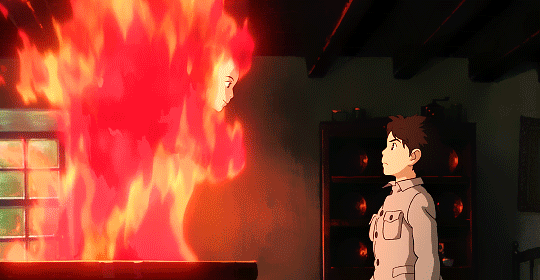
There are other messages in the film, such as the importance of your legacy, which doesn't have to be followed by a prodigious heir, it doesn't have to be done exactly the same way (or better) to be good and true to what you did in life. In the end, your legacy is the emotional mark you leave on those who were with you at some point, it's your actions what people will remember. People who once worked on your project can follow their own creative path, which is perfectly fine, because you are unique, no one is going to be exactly like you. So we must accept that once we die, everything really ends.
And I could go on writing more about all the messages of this masterpiece but it would be a very long post (more than what it already is). Just with what I mentioned I make it clear that this is an incredible story that is made with passion and dedication to be able to leave a transcendental and truly significant message. It is a very moving film, one of the best I have seen in my life. I would tell everyone in the world to watch it, both for its messages and the adventure that it is in itself, since each scene feels like watching a dream full of magic that is simply captivating from beginning to end.
If you have warched it already, leave your comments below with your opinion, I would love to read them. If you haven't watched it yet, I'll leave you the trailer to finally convincing you to do so.





Español
¡Hola, Hive!✨
Hacia tiempo que una película reciente no me emcionaba, hasta que vi El niño y la garza, del gran Hayao Miyazaki de la mano del igualmente grande Studio Ghibli. Hoy les compartiré mi opinión al respecto que tendrá spoilers y de la cual ya pueden intuir algo. Sí, me encantó completamente, pero quédate a leer porqué
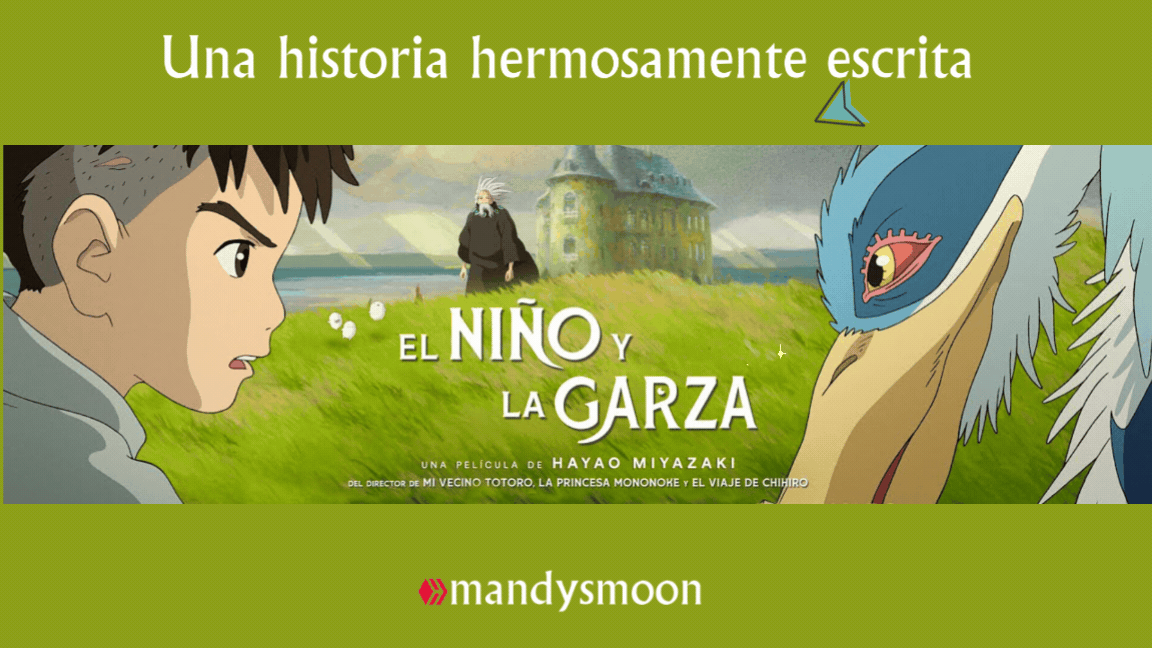

Sinopsis
Es 1943 en plena Guerra del Pacífico. Mahito Maki tiene apenas 12 años y vive bastante cómodo con el exitoso empresario Shoichi, su padre, y su madre. Todo iba bien aunque ella estuviera internada en un hospital. Pero una noche, de repente, el hospital se incendia. Su madre se encuentra dentro, pero a pesar de todos los esfuerzos no logran rescatarla...
Más adelante su padre se vuelve a casar con la hermana menor de la madre de Mahito, Natsuko, quien además está embarazada, por lo que deciden mudarse a su casa de campo para que ella pueda ser atendida por sus sirvientes y además, como escape del estrés de la guerra.
Mahito intenta adaptarse a su nueva vida sin éxito alguno, además, como si nu fuera suficiente, hay un molesto animal, una garza que no deja de acosarlo por cualquier lugar de la casa. Pronto el niño descubriría que ese animal lo fastidiaba con deliberada intención...

Esta película tiene mucha tela que cortar. Podemos empezar hablando de lo que usualmente llevan las producciones de este director y el estudio, pues como es usual la animación es sencillamente increíble. Para ser 2D es tan rica en detalles que realmente no necesita usar otros recursos, es maravillosa en todo sentido. Adoro sobretodo la escena del hospital en llamas, no solamente por el estilo sino que también hacen un uso perfecto de la animación como recurso de comunicación. La desesperación, drama y trauma de la escena se representa en la forma en que se ve todo borroso, casi desdibujado, donde apenas se aprecian detalles porque todo da la sensación de estar ocurriendo demasiado rápido, tal como pasaría en la vida real.
Junto a eso, está el complemento de lo auditivo, con detalles como en esa misma escena, donde al ser algo traumático que vive un niño, los ruidos suenan apagados, no distingues lo que gritan las voces, es como ruido de fondo. Una vez más, el estudio hizo una joya audiovisual.
Además está completamente cargada de simbolismos y referencias al folklore japonés, cosa que sucede en todas las películas de este estudio, siendo un elemento llamativo e interesante. Lamento que la traducción del título de la película no haya sido literal puesto que también tiene un significado. Kimitachi wa Dō Ikiru ka 君たちはどう生きるか significa literalmente «¿Cómo vivirás?» lo cual ya desde el inicio te indica de qué tratará la historia que está inspirada en parte en un libro, pero principalmente en la vida del propio Miyazaki.

El mensaje principal es dejar ir, concretamente aceptar e internalizar la pérdida de un ser querido. El luto puede ser un proceso arduo y doloroso, sobretodo si eres demasiado jóven para entender las implicaciones de muchas cosas. El cambio siempre genera resistencia, pero si no se comienza a aceptar lo más probable es que también genere cosas negativas, como el resentimiento, ira y profunda tristeza. No me malinterpretes, todas esas emociones son normales en un proceso de duelo. Pero si después de mucho tiempo te estancas en lo mismo, allí es cuando puede ser muy problemático.
Mahito atraviesa por todas las etapas del duelo, desde la negación hasta la aceptación, y através del mágico viaje de la historia va resolviendo cada etapa, entendiendo que por muy injusto que parezca la vida simplemente te da cambios abruptos que debes enfrentar para poder seguir adelante. Muchas veces es traumático, pero de ti depende salir de esa situación de la mejor manera posible. Y claro, este personaje cuenta con la gran ventaja de tener un círculo de apoyo cercano y sincero, que es su padre, todas las personas que viven en la casa e incluso su nueva madre, Natsuko.
La pelicula también habla de cómo el duelo puede llevarse de distintas maneras. Puedes llorar, gritar así como también puedes seguir adelante y disfrutar de otras cosas sin dejar de pensar en aquella persona. Seguir adelante no significa que no importaban nada para ti, por el contrario, muy probablemente es lo que esa persona habría querido, verte feliz.
Hay otro mensaje primordial en la película que es qué pasaría si pudieras cambiar el pasado... ¿Lo harías o dejarías todo igual? Para muchos no es un dilema sencillo. En muchas ocasiones en la vida me encontré fantaseando en cambiar mi pasado, en «hacer las cosas mejor» para así no vivir todo lo que me tocó vivir. En aquel momento de haber sabido cómo terminarían las cosas, ¿habría cambiado algo? Pues sí, dentro de mi propio dolor en mis traumas quería o sentir eso, tener la vida de antes y ser feliz. Pero ahora sé que las cosas que vivimos nos hacen las personas que somos, no más fuertes o débiles, simplemente somos quienes somos gracias a nuestras experiencias.
Lejos de romantizar esto, Miyazaki refleja todo el dolor que uno puede vivir, todos los errores que puedes cometer y sus consecuencias, la manera en que incluso lo malo forma parte de ti.

Hay otros mensajes en la película, como por ejemplo la importancia de tu legado el cual no tiene que ser seguido por un heredero prodigio, no tiene porqué hacerse exactamente igual (o mejor) para ser bueno y apegado a lo que en vida hiciste. Al final tu legado es la marca emocional que dejas en aquellas personas que te acompañaron alguna vez, son tus acciones lo que la gente recordará. Las personas que alguna vez trabajaron en tu proyecto pueden seguir su propio camino creativo lo cual está perfectamente bien, porque tú eres único, nadie va a ser exactamente igual que tú. Así que debemos aceptar que una vez muramos, todo realmente acaba.
Y podría quedarme escribiendo más sobre todos los mensajes de esta obra maestra pero sería un post demasiado largo. Sólo con lo que mencioné dejo claro que esta es una historia increíble que está hecha con pasión y dedicación para poder dejar un mensaje trascendental y verdaderamente significativo. Es una película muy conmovedora, de las mejores que he visto en mi vida. Yo le diría a todas las personas en el mundo que la vean, tanto por sus mensajes como la aventura que en sí misma es, puesto que cada escena se siente como ver un sueñi cargado de magia que es simplemente cautivador de inico a fin.
Si la has visto deja tus comentarios abajo con tu opinión, me encantaría leerte. Si aún no la ves, te dejo el trailer para terminar de convencerte para que lo hagas.

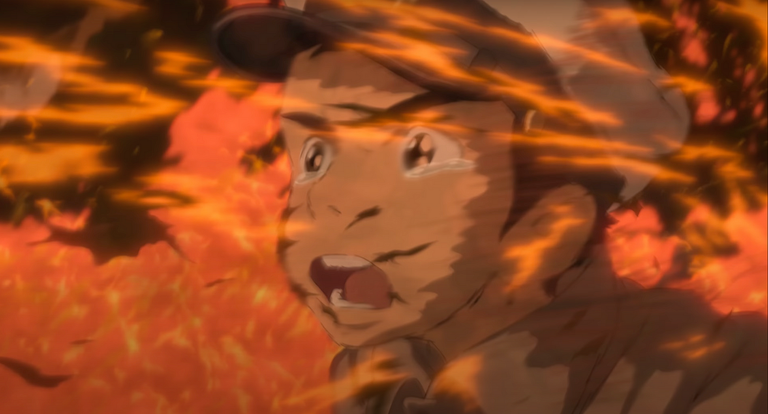
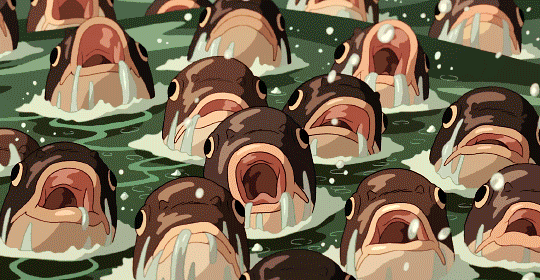
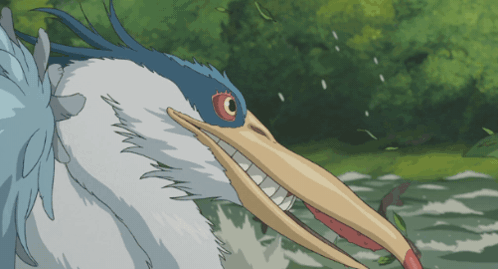
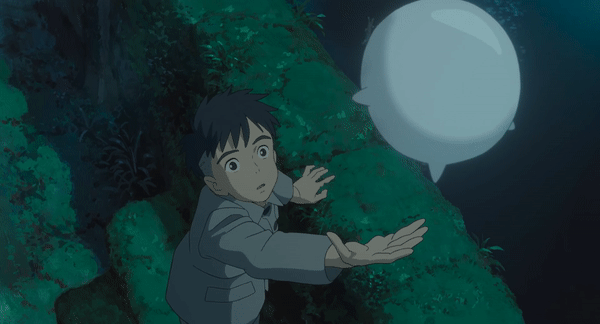
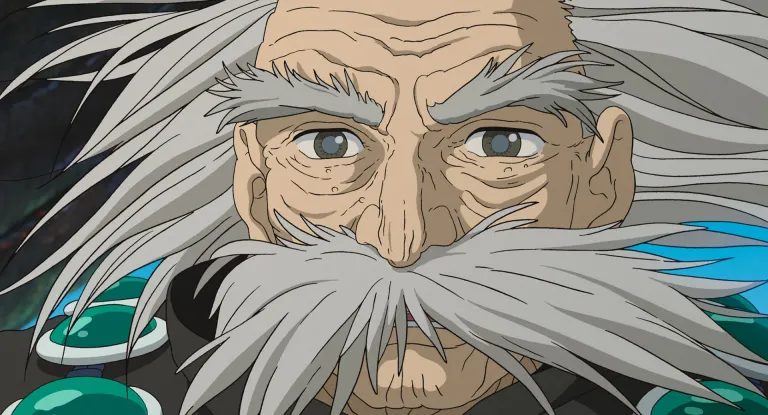
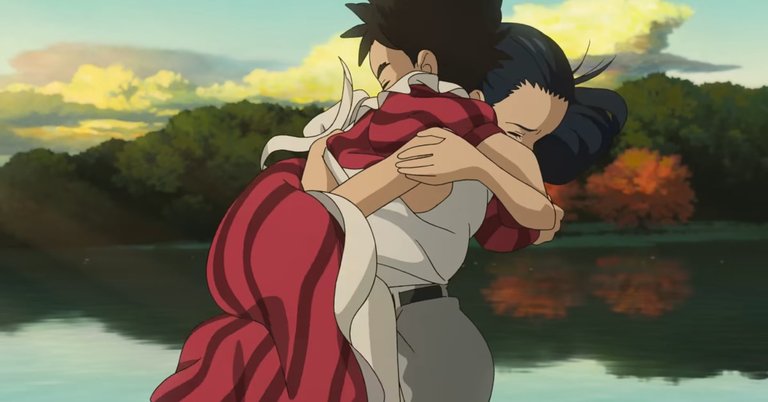
https://x.com/mandysmoon98/status/1837639384008696017
Creo firmemente que el Studio Ghibli no decepciona✨ Tengo esta película en mi lista, dado que las películas de este estudio siempre encuentra la manera de entrar a mi corazoncito. Estoy esperando tener real tiempo libre (salir del semestre) para realizar un maratón de Ghibli, y finalizarlo con esta obra🥺
Le tenía bastante fe ya, pero con tu reseña aumenta mis expectativas💗
Créeme que te va a encantar tanto o más que las otras. Es de verdad excelente y sí merece ser disfrutada con tiempo y tranquilidad, para apreciar cada detalle✨
Esta película es increíble, tal y como lo son todas las películas de los Studios Ghibli. La forma de contarnos una historia con tantos detalles y significados, a su vez de transmitir mensajes tan profundos con personajes tan excelentemente desarrollados es simplemente fantástico. El nivel de producción, estilo de animación, efectos visuales y banda sonora son dignos de todo el elogio que han recibido, además de los premios que ham ganado con esta maravilla de película recientemente. Esta película me recuerda mucho a Spirited Away con la mezcla del mundo fantástico con el mundo real y todo.
Excelente reseña.
¡Tienes razón! En ese sentido es muy similar a Spirited Away, quizá por eso me encantó tanto jajaja y como esa obra, ésta también fue ganadora de un Oscar por lo increíble que es en todos los sentidos. Simplemente Studio Ghibli tiene puras joyas.
Gracias por comentar🖤
Magnífica reseña de este filme de Miyazaki, del cual das una visión muy amplia en cuanto a su contenido moral y psicológico. Saludos, @mandysmoon.
¡Muchas gracias por leer y por el apoyo! 💗
¡Felicidades! Esta publicación obtuvo upvote y fue compartido por @la-colmena, un proyecto de Curación Manual para la comunidad hispana de Hive que cuenta con el respaldo de @curie.
Si te gusta el trabajo que hacemos, te invitamos a darle tu voto a este comentario y a votar como testigo por La Colmena.
Si quieres saber más sobre nuestro proyecto, te invitamos a acompañarnos en nuestro servidor de Discord.
¡Muchas gracias por el apoyo! 💗
As always, Studio Ghibli is making animated gems and I love that they have kept their character designs, they are their essence 😍
I haven't watched this movie yet, lately it's hard for me to find time to watch anime haha but as always, leaving very deep messages, like the mourning process.
Yes! The characters design is just unmatched and the overall animation.
I hope you can find the time to watch it, it's simply gorgeous and with a strong and beautiful message 💗
Miyazaki siempre logra tocar temas tan importantes de una manera tan poética. La forma en que exploras el duelo y el crecimiento personal del protagonista es realmente conmovedora. La animación, como siempre en Studio Ghibli, parece ser un personaje más en la historia, lo que hace que todo sea aún más impactante. ❤️
Estoy totalmente de acuerdo, aunque parezca un sueño realmente la historia tiene mensajes muy importantes.
Muchos gracias por leer y comentar 🖤
el Studio Ghibli no decepciona, una película apreciable! buen post!
Studio Ghibli does not disappoint, an appreciable movie! good post!
Estoy muy de acuerdo contigo. ¡Gracias por comentar!
I totally agree with you. Thanks for commenting!